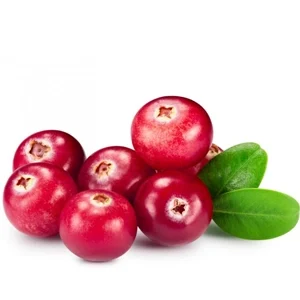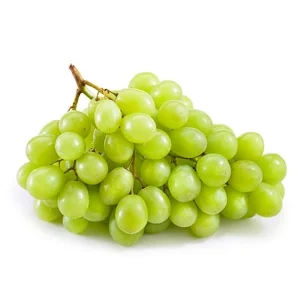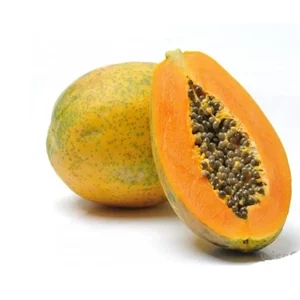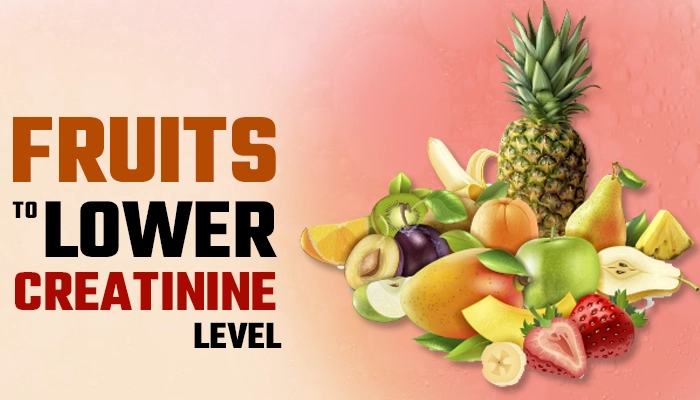What is creatinine?
Creatinine is a waste product that is produced by the muscles in our body as they use energy. It is generated from the breakdown of creatine, a molecule that is found in muscles and is used to supply energy to them. Creatinine is produced at a constant rate in the body and is filtered out of the blood by the kidneys, which then excrete it from the body through urine.
The level of creatinine in the blood is a useful measure of kidney function, as healthy kidneys are able to filter out creatinine efficiently. If the kidneys are not functioning properly, creatinine levels in the blood can increase, which can indicate kidney damage or disease. High levels of creatinine in the blood are therefore a sign of reduced kidney function, as the kidneys are not effectively filtering out the waste product.
10 best fruits to reduce creatinine levels
In a kidney disease diet, fruits can provide a range of benefits. They are a good source of essential vitamins, minerals, fiber, and antioxidants, which can help support overall health and wellbeing. Fruits are also generally low in sodium and high in water content, which can help manage fluid levels in the body and reduce the workload on the kidneys. Additionally, many fruits are low in potassium and phosphorus, which are minerals that can be problematic for those with kidney disease. Including fruits in a kidney disease diet can therefore help support kidney health and overall health and wellbeing.
Here is a list of fruits that can be included in the diet to help reduce creatinine levels:
- 1. Apples

- Apples are a great source of antioxidants and fiber, and are low in potassium and phosphorus. They can help reduce the risk of kidney disease and lower creatinine levels.
- 2. Pineapple

- Pineapple contains bromelain, an enzyme that has anti-inflammatory properties and can help reduce swelling in the body. It is also low in potassium and phosphorus, making it a good fruit for those with kidney problems.
- 3. Blueberries

- Blueberries are rich in antioxidants and can help reduce inflammation in the body. They are also low in potassium and phosphorus, making them a good fruit for those with kidney problems.
- 4. Cranberries

- Cranberries contain proanthocyanidins, which are powerful antioxidants that can help reduce inflammation in the body. They are also low in potassium and phosphorus, making them a good fruit for those with kidney problems.
- 5. Strawberries

- Strawberries are high in vitamin C and antioxidants, and can help reduce inflammation in the body. They are also low in potassium and phosphorus, making them a good fruit for those with kidney problems.
- 6. Watermelon

- Watermelon is high in water content and can help flush out toxins from the body. It is also low in potassium and phosphorus, making it a good fruit for those with kidney problems.
- 7. Grapes

- Grapes are rich in antioxidants and can help reduce inflammation in the body. They are also low in potassium and phosphorus, making them a good fruit for those with kidney problems.
- 8. Mango

- Mangoes are rich in vitamin C and can help boost the immune system. They are also low in potassium and phosphorus, making them a good fruit for those with kidney problems.
- 9. Pears

- Pears are a good source of fiber and can help regulate bowel movements. They are also low in potassium and phosphorus, making them a good fruit for those with kidney problems.
- 10. Papaya

- Papaya is rich in antioxidants and can help reduce inflammation in the body. It is also low in potassium and phosphorus, making it a good fruit for those with kidney problems.
Avoid high-potassium and high-phosphorus food
In addition to eating these fruits, it is also important to limit the intake of high-potassium and high-phosphorus foods, such as bananas, oranges, tomatoes, avocados, potatoes, and dairy products. It is also important to stay hydrated by drinking plenty of water and other fluids.
In conclusion, incorporating a variety of low-potassium and low-phosphorus fruits into your diet can help reduce creatinine levels and improve kidney function. However, it is important to consult with a healthcare professional or a registered dietitian before making any major changes to your diet. They can provide personalized advice based on your individual needs and health conditions.
Some Other ways to lower creatinine levels naturally
Creatinine levels in the blood are a common indicator of kidney function, and high levels of creatinine can be a sign of reduced kidney function. While medical treatment is often necessary to manage high creatinine levels, there are also several natural ways to help lower them. Here are some other ways to lower creatinine levels naturally:
- Stay hydrated: Drinking plenty of water and other fluids can help flush out the kidneys and reduce creatinine levels.
- Exercise regularly: Regular physical activity can help maintain healthy blood flow and promote kidney function.
- Eat a balanced diet: A balanced diet that includes plenty of fruits, vegetables, whole grains, and lean proteins can help support kidney health and reduce creatinine levels.
- Limit protein intake: Consuming too much protein can put a strain on the kidneys, so it’s important to limit protein intake to recommended levels.
- Reduce salt intake: Eating too much salt can lead to fluid retention and increase the workload on the kidneys, so it’s important to reduce salt intake.
- Manage underlying health conditions: Underlying health conditions, such as diabetes and high blood pressure, can contribute to high creatinine levels, so it’s important to manage these conditions to help reduce creatinine levels.
- Avoid certain supplements: Certain supplements, such as creatine, can increase creatinine levels, so it’s important to avoid them if you are trying to reduce creatinine levels.
In summary, making lifestyle changes and taking steps to promote kidney health can be effective ways to help lower creatinine levels naturally. However, it’s important to talk to your doctor before making any significant changes to your diet or exercise routine.






